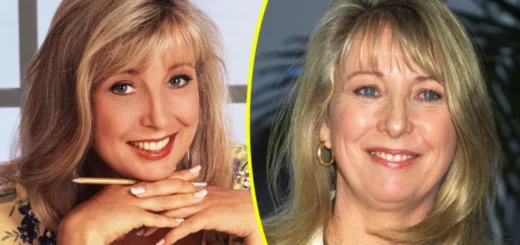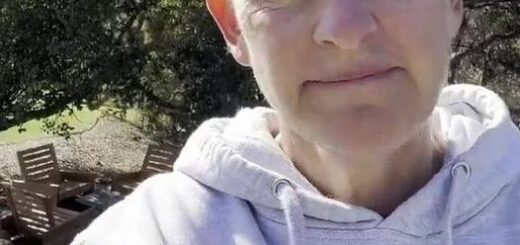Shocking Exit: Why Kevin Costner Left Yellowstone—The Hidden Truth Finally Uncovered
The user asked to remove inline citation markers and links from the body of the article. The rewritten version should therefore be a clean text, without any citation markers or reference brackets.
Why Kevin Costner Walked Away from Yellowstone: The Real Story Behind the ExitThe sudden departure of Kevin Costner from Yellowstone felt, to many fans, like the ground shifting under the Dutton ranch. Was it a scheduling clash, creative differences, or a messy feud that no one wanted to admit? The truth is layered: Costner’s exit resulted from a mix of scheduling pressures, frustrations with how his involvement was handled, and a desire to move on to personal projects without “drama.
ADVERTISEMENT
” Below, we unpack the timeline, the behind-the-scenes tensions, and what the exit means for the show and its fans.

A Timeline of a Public Unraveling
The story unfolded gradually, not explosively. Rumors about Costner’s availability and tension with production intensified through late 2023 and into 2024, with mounting reports that his work on his own Western project, Horizon: An American Saga, clashed with Yellowstone’s filming schedule.
By mid-June 2024, Costner publicly confirmed that he would not be returning to the show, saying simply that he “just realized that I’m not going to be able to continue.” This announcement followed months of speculation, delayed production, and scattered reporting that made the situation look more adversarial than the actors later suggested.
Scheduling or Something Deeper? The Two-Track Explanation
ADVERTISEMENT
On the surface, scheduling conflicts are easy to point to: Costner was directing and promoting Horizon, a passion project that demanded enormous time and energy. Several outlets reported his shooting schedule made it difficult to commit the necessary days to Yellowstone. But there’s more. Costner expressed frustration not just with time, but with how the studio and showrunners handled his position in the franchise.
ADVERTISEMENT
He told reporters he was “disappointed” that voices didn’t step up to defend his contributions, hinting at unresolved tensions with parts of the production machinery. That mix—practical constraints plus personal dissatisfaction—was the real driver.

How the Exit Reshaped the Final Episodes
Writers and producers were forced to pivot.
Sources inside the production revealed that earlier drafts and plans for John Dutton’s arc had to be rewritten when Costner stepped away. The show’s creators reshaped the final season to account for the absence of its most recognizable lead—an editorial choice that, according to insiders, required rewrites, reshoots, and emotional adjustments for the cast. Cast members later admitted it was difficult to “lock back in” after such a seismic change.
ADVERTISEMENT
That ripple effect turned a single actor’s choice into a franchise-level shift.
The Human Side: What Fans and Cast Felt
For viewers, John Dutton was an anchor: patriarch, moral thunderbolt, and the Dutton family’s beating heart. When Costner announced his exit, social feeds filled with grief, anger, and theories. Cast interviews after the finale read like a group therapy session—actors praised Costner’s contributions and admitted they were emotionally affected by how the departure changed their work.
ADVERTISEMENT
Those reactions matter: fans don’t just watch plot beats—they attach identity to performers, and when a central figure leaves, the relationship between audience and show is altered.
The PR Posture: “I Don’t Need Drama”
Costner’s public statements were strikingly calm: he framed his decision as a personal choice rather than a public confrontation. In interviews and social posts, he said he “doesn’t do drama,” and emphasized gratitude for the experience, even while acknowledging disappointment in how some matters were handled.
That measured tone helped him avoid fueling a prolonged media war—but it also left room for many interpretive headlines, feeding the rumor mill. In short: he walked away, not with a blaze of fury, but with a quiet exit that still sent shockwaves.
What It Means for Yellowstone and the Franchise
Practically, the franchise model is resilient: spinoffs (1883, 1923, 6666, and more) can carry the Dutton mythology forward without Costner.
ADVERTISEMENT
Creatively, however, losing John Dutton meant shifting the emotional center and giving other characters larger arcs—and that’s risky. For editors and content creators, this moment is a goldmine: reaction pieces, archival tributes, and deep dives into how the finale changed because of his absence all perform well. For fans, the loss is ambivalent—sad but also intriguing: how will the Dutton legacy survive without its most iconic face?
ADVERTISEMENT
Final Thought: Exit as a Beginning, Not an End
Kevin Costner leaving Yellowstone is not just a headline—it’s a turning point. It exposes the fragile choreography of star power, production demands, and personal priorities. Costner chose to protect his creative investments and sanity over continuing a role that defined him for half a decade. Fans will keep debating whether the show’s ending was fair to the character; the creators will keep shaping the Dutton saga across spinoffs; and Costner will keep building Horizon.
The real drama now plays out in what comes next—for the franchise, for the actors left on the ranch, and for viewers hungry for the next twist. Who will inherit John Dutton’s legacy—Beth, Rip, or a brand-new protagonist in a spinoff? The clues are there if you know where to look, and the waiting game for answers is part of the story.


